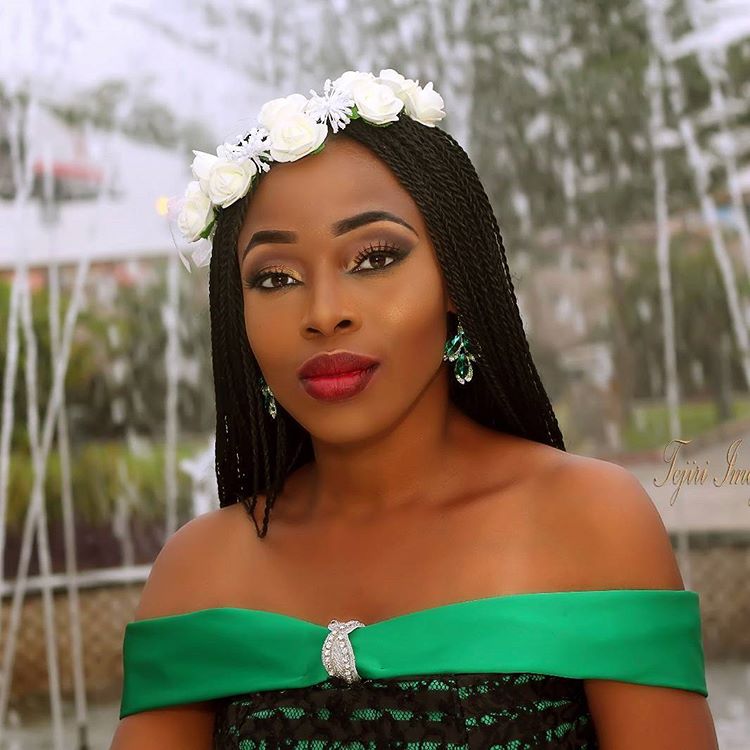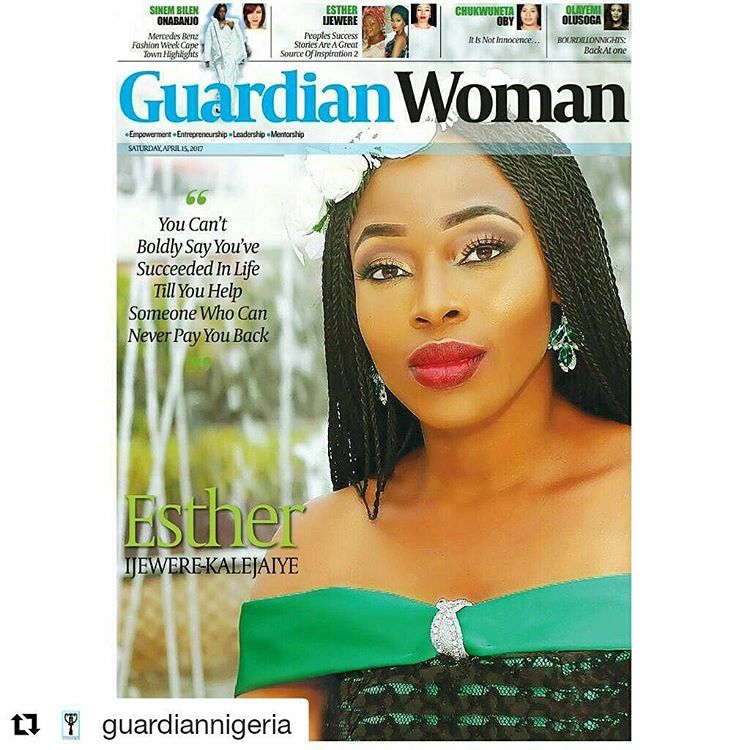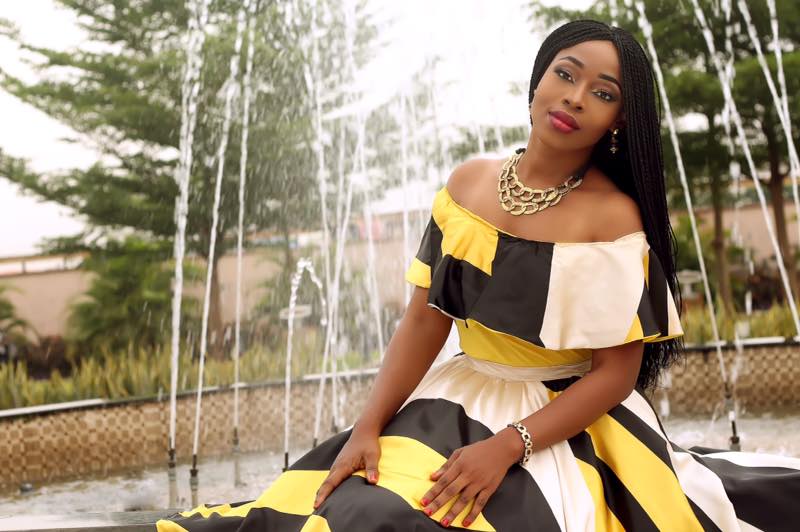Esther Ijewere is an enterprising social activist, youth advocate, Columnist, author, mother of two and the Executive Director of Rubies Ink Initiative- a social enterprise outfit devoted to youth advocacy, public relations and social enterprise solutions among others. An Olabisi Onabanjo University-trained Sociologist, as a social advocate, she is the brain behind W.A.R- Walk Against Rape, an advocacy initiative created to lend a voice for the victims of rape and demand justice for the perpetrator’s, an initiative endorsed by the Lagos State Ministry Of Women Affairs and Poverty Alleviation. She is also a columnist with The Guardian newspaper with her page Women of Rubies, a platform used to celebrate exceptional women with inspiring stories. The page is a sequel to her award-winning blog www.womenofrubies.com, which is fast becoming the one stop blog for the everyday woman. In this interview with NIKE SOTADE, she talks about the strides she has made in her passion to fight against rape in the society
Tell us about yourself, education, growing up etc.
I am Esther Ijewere, the Founder of Rubies Ink Initiative for Women and Children, Convener of the Walk Against Rape Campaign and also, Editor-In-Chief of Women of Rubies, a blog aimed at celebrating exceptional women with inspiring stories. I sit on the board of The African Development Imperative (TADI) and also, a fellow with Hillary Clinton’s founded Vital Voices Global Leadership. I have been into advocacy and development work since 2010. I am the recipient of many awards – notable among them are the ‘Wise Woman in Media Award’ I received last year and my recent recognition as one of the ‘100 Most Inspiring Women in Nigeria’ by Leading Ladies Africa. I had my Primary and Secondary education in Lagos and graduated from the Olabisi Onabanjo University with a BSc in Sociology and Diploma in Marketing. I am also a certified ‘On Air Personality’ but that’s one of the many caps I am yet to explore. I believe in learning and acquiring knowledge as much as one can in any field of interest – if you can think it, then you can do it.
Any experiences in life that propelled you into sexual violence or anti-rape advocacy? You’re a mother of two girls, are they your inspiration too?
At the time I started the anti-rape campaign, I realised a lot of people were scared of reporting cases of rape out of fear of being stigmatised and judged. The number of reported cases was very low. This propelled me to start the sensitization awareness and lend my voice while complementing the work of the Government in curbing rape and other forms of sexual violence. Being a mother of two girls also deepened my passion for the cause, as I can’t imagine any of them having to go through such ordeal in life.
You’ve been working with government agencies in what capacity? Do you think Lagos State government is doing enough in its anti-rape campaign?
I have been working with the Lagos State Government through its Ministry of Women Affairs and Poverty Alleviation since 2010; we partner with them annually to organise our Walk Against Rape Campaign and also refer cases of rape and domestic abuse to them, while we follow it up to a justifiable end. As such, I’d emphatically say that Lagos State is the only State that has shown the most concern on issues that affect women, particularly rape. The Governor, for example, has a zero tolerance policy for all forms of violence against women, and he works hand in hand with the necessary government agencies to make sure offenders are prosecuted. The Lagos State Government is doing enough at the moment; I just hope they can create more Help Centres in every local council across the State to help victims get help faster. This is one thing I have been advocating for since 2010.
Have they prosecuted any offenders? Kindly give figures if you have them.
In 2016, 4, 035 cases ranging from rape, child abuse, sexual assault, sexual abuse to defilement, were handled by the Lagos State Ministry of Justice; this, being a cumulative figure alongside the previous year. The number of unreported cases is obviously higher than that as 140 offenders were prosecuted last year. I believe the figure will increase as time goes by.
What kind of advocacy do you take to the schools?
Sensitisation and Awareness through our College Acquaintance Rape Education workshop (C.A.R.E) where we educate these young kids on how to identify an abuse and the need to report such cases to the necessary authority. I also wrote an information Handbook on Rape called “Breaking the Silence.” We use it as a toolkit to sensitize them – a book that contains all the necessary information they need; from help lines to help centres across Lagos. The feedbacks from the kids in the last few years have been great; we have more kids reporting such cases in confidentiality now.
Who are the potential or likely rapists?
Undisciplined men, who do not have self-control, are potential rapist.
Kindly share with us some of the tips you’ve offered school children on defending themselves against predators.
I have a personal code I teach them with called L.I.E.S: L stands for ‘Learn to say NO’, I – ‘Identify the situation’, E – ‘Expose the perpetrator’, S – ‘Say it as it is without conceding information’. I encourage them to write this in their exercise books or we give them stick on papers they can paste on their wardrobes.
More rape cases are being reported in the news nowadays. What do you think could be responsible?
It’s still indiscipline and lack of self control. There is no justification for rape or any form of sexual abuse. Some have argued that the economy is one of the reasons but I beg to differ: how will raping or defiling a child change your financial status? It’s also good we have more reported cases lately – this goes to show we have not been lending our voice in vain.
Do you counsel rape victims, too? What advice do you have for them to move on with their lives?
Yes, I do. First, I take them through a healing process; the biggest stage of healing is ‘breaking your silence’ and I also encourage them not to ever blame themselves for getting raped or dwell on it.
You’re also a blogger and columnist with the popular Women of Rubies interviews. How do you go out of your way to get these exceptional women?
Blogging, through the Women of Rubies Platform, has been very interesting. It avails me the opportunity to be more inspired and challenges me to even do more. We often have people nominate women they feel are worthy of being celebrated; we get nominations weekly for a ‘deserving woman’ whose story deserves to be brought to the front-burner.
What’s relaxation for you?
Sadly, I hardly relax but lately, I’m beginning to learn how to have some time for myself. I go out to see an interesting movie or just stay indoors and watch one – zero-attention to social media; just that alone-movie time to relax the head.
Who are your role models?
My mum, because she had every reason under the sun not to bring me to the world, but against all odds she did and made sure I become the woman I am today. Another person is Kate Henshaw. She is one of the very first people who believed in me, she made sure I got more tutelage from more experienced women in my line of work and she also became a mentor in the process. Aunty Kate as I fondly call her is one of my biggest support systems in the industry. Her selflessness and humility inspire me a lot. I also admire Remi Shonaiya, the presidential candidate for KOWA Party for daring to be different and standing up tall, for showing that a woman can contest and one day sit at the highest level of authority in this country. I am inspired by her courage and the way she has positioned herself even after losing the election. I also admire Ini onuk and Betty Irabor. On the International scene it’s Oprah Winfrey and Hillary Clinton.
You’re the daughter of a renowned accountant in the country, why didn’t you follow daddy’s career? What life’s lessons have you learned from your dad?
For me, this is what God wants me to do; this is the path He wants me to toe – I am living my own purpose. My dad’s purpose is in accounting and other fields he has excelled in; he respects my vision and is very supportive of my aspirations in life. One life lesson he taught me is to always stay and think positive, no matter what life throws at me.
What’s your philosophy of life?
I am not scared of lifting other women up; I am not afraid to help other women and see them succeed. My thing is: “as long as I wear the crown, no one can take my throne”. You can’t boldly say you have succeeded in life till you help someone who can never pay you back.
Advice for young women out there
Women, stand up! Go out there and be all you want to be. Be strong and bold, do all you can to have a voice and an identity. Let your name be the solution to a problem you solve.
Interview originally published by Guardian


